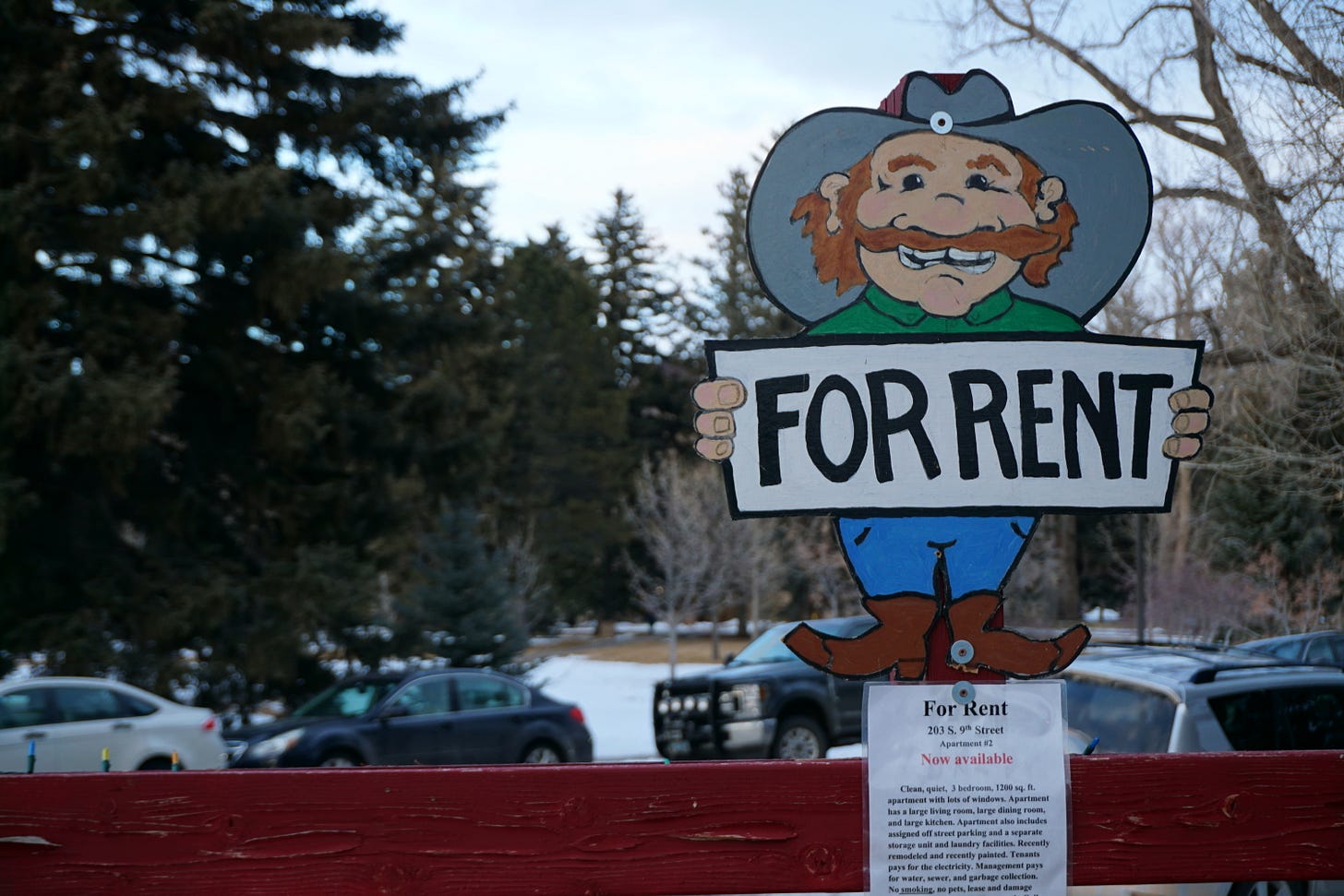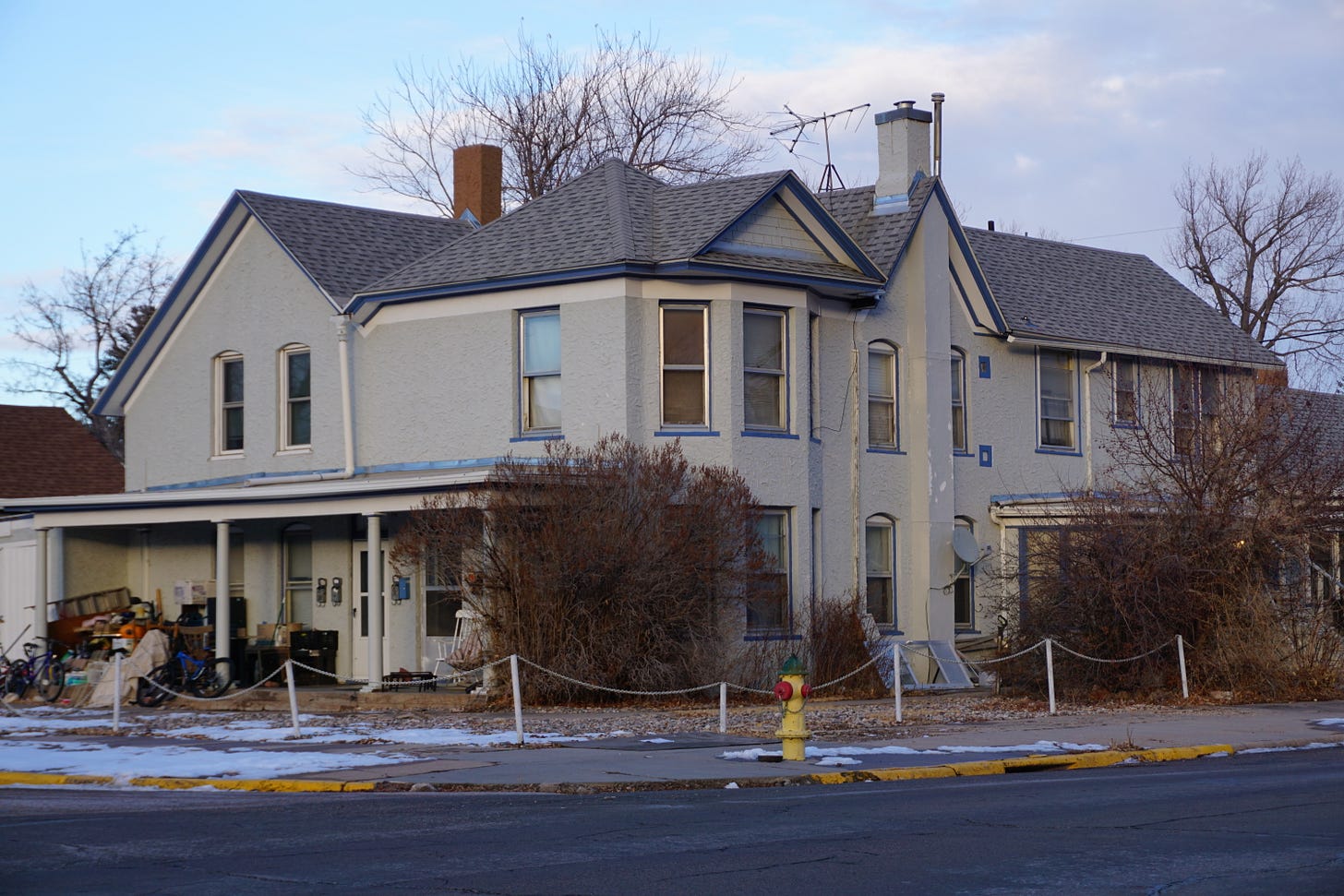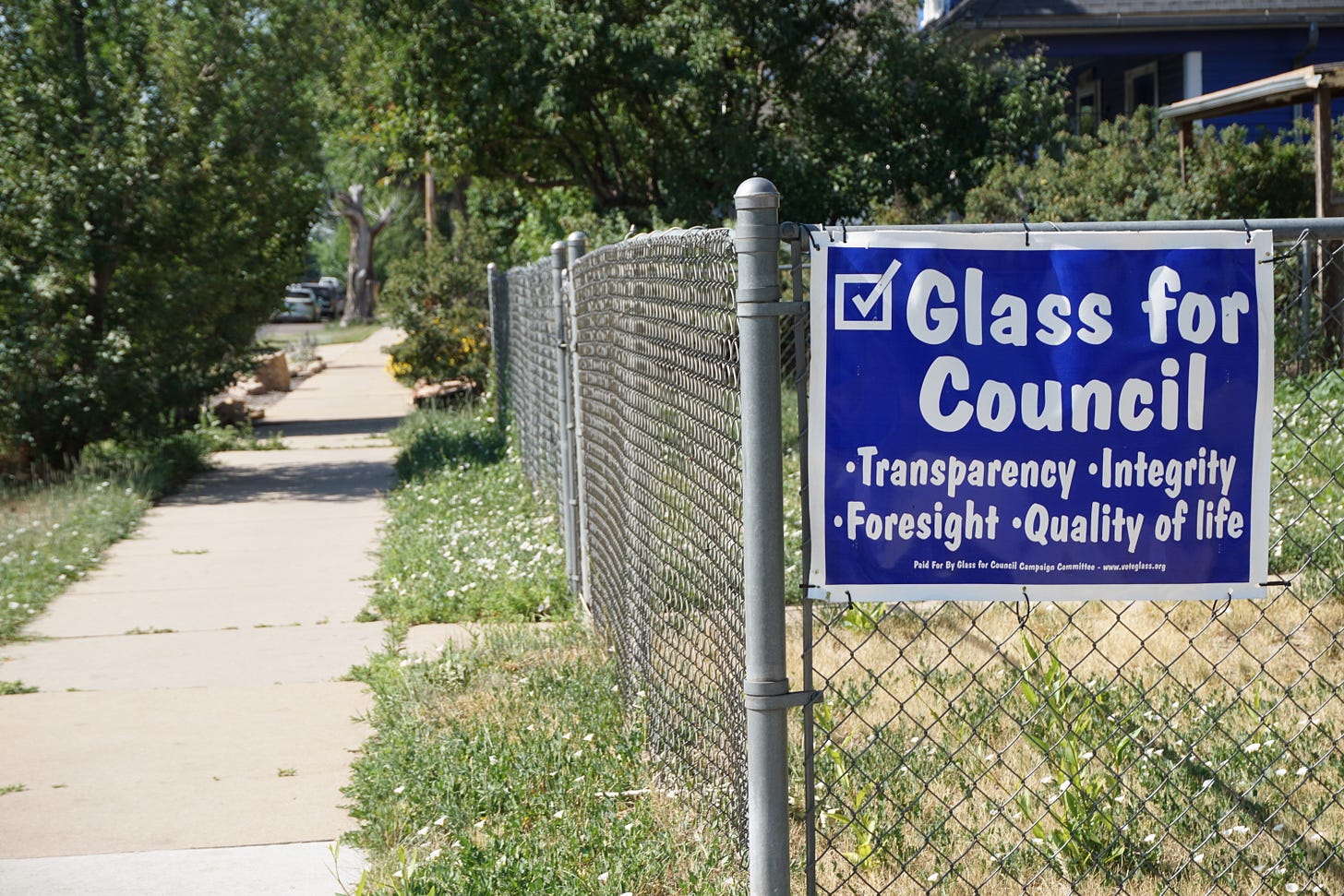High-ranking Laramigos defend the city's rental housing code
"This program is impacting living conditions and life safety for the 15,000 people that rent within the city of Laramie. The city is fulfilling its core function of protecting life health and safety."
In the years since Laramie adopted its rental regulations, various landlords and lawmakers have attempted to unravel them — so far, to no avail.
In the lead-up to the 2025 General Session of the Wyoming Legislature, a resurrected proposal aimed at killing Laramie’s regulations — and forbidding all other communities from passing their own — is once again snaking its way through the lawmaking process.
The proposal would “preempt” the field of rental regulations, which would mean only the State Legislature could establish habitability standards or other rules surrounding rentals.
“No city, town, county or other political subdivision shall authorize, regulate or otherwise govern the leasing of residential rental units,” the draft bill declares. “No city, town, county or other political subdivision shall require owners of residential rental units to register residential rental units or pay any registration fee.”
But during a Regulatory Reduction Task Force hearing in Casper Thursday, representatives for the city of Laramie once again voiced support for their rental regulations and pushed back against the campaign to reverse them.
“As a homeowner, I can choose to live in a home that is perhaps unsafe to me or my family or my guests,” City Manager Janine Jordan told the gathered lawmakers. “But when you are renting that home to another person and executing a business function, the understanding of the council was that … there should be some minimum standards of life and safety when you bring someone into that home in exchange for money.”
Jordan said the habitability standards approved by the Laramie City Council “are probably the most basic any of us would want for ourselves or our friends.”
“These are questions of: Is there heat? Is there running water? Does the plumbing function and is there fire escape from bedrooms?” she said. “The standards are less onerous and less costly than the International Residential Code, which the city council could have adopted — could still adopt — and again, landlords are only asked to conduct a self assessment of their property.”
After hearing from Jordan and others, the members of the Legislature’s task force declined to pursue the proposal any further.
That doesn’t mean the proposal’s dead — the draft bill will appear once again before the Corporations Committee next week — but the task force’s disinterest in taking up the measure is a point against its ultimate survival.
“I think we’re going to give that back to Corporations and let them have as much fun with it as they want to,” Task Force Chair Rep. Bob Nicholas (HD-7) said.
Rental code in the crosshairs
Laramie’s rental regulations — officially the City Rental Housing Code — outlines basic health and safety standards for rentals within city limits. It also requires landlords to register their units and establishes a formal complaint system for tenants.
The rental code survived both a lawsuit brought by Bell Leasing in 2022 and a legislative attempt the following year to preempt the entire area of rental regulations and forbid Laramie — or any other community in Wyoming — from establishing their own rental standards.
But that legislative proposal is now back on the table in the form of a draft bill, frequently referred to as “the preemption bill.” The preemption bill is currently being considered by the Joint Corporations Committee, which could choose to endorse it ahead of the legislature’s next session.
Members of that committee discussed the bill during a meeting in April and are scheduled to discuss it once more later this month. But on Thursday, the Regulatory Reduction Task Force took a crack at the proposed legislation, considering it alongside other draft bills addressing various aspects of housing.
Nicholas and the other members of the task force made it clear they had no interest in advancing the bill, instead turning it back over to Corporations. While there was ultimately very little conversation between the lawmakers themselves, the public testimony on offer Thursday served as a preview of the factions and debates Wyoming is likely to see if the preemption bill continues to advance.
Significantly, City Manager Jordan and City Councilor Micah Richardson attended in person to defend the rental regulations and the right of local communities to pass their own.
“We believe this program is impacting living conditions and life safety for the 15,000 people that rent within the city of Laramie,” Jordan said. “The city is fulfilling its core function of protecting life, health and safety.”

But the lawmakers heard another opinion too — that of Laramie landlord Brett Glass, who has been a vocal opponent of the rental housing code for years.
While Glass was the only commenter to support the preemption bill and oppose the city’s existing rental regulations, he represents a larger faction within the city’s landlord community that views the new regulations as unfair.
“Some of the council members who voted in favor of it seem to have meant well,” Glass told lawmakers. “Others frankly admitted that they were out to get landlords who they believed to be evil, and still others seemed to go along because they always favored bigger government and more bureaucracy. But in any case, whatever the reason, the ordinance has been unequivocally a flop. It’s harmed tenants rather than helping them.”
Councilors did not label landlords “evil” during the original ordinance’s public readings, but many did make reference to stories of dilapidated or dangerous living conditions, patterns of double-renting, aggressive marketing and management tactics, and the inability of poor residents to hold their landlords accountable under existing law.
But Glass contends the regulations are “extremely stringent” and have “harmed tenants” by forcing landlords to raise rents or by scaring them out of the market altogether.
“Several big landlords have pulled their units from the market rather than deal with all the bureaucracy; others are selling their properties,” he said. “Rentals have jumped dramatically, and there's now a serious shortage of affordable rentals.”
Laramie’s rental housing code requires that rental units be structurally sound, weatherproofed and free of pests or mold. It also dictates that any major electrical, plumbing or heating work within the unit must be performed by licensed professionals, and that bedrooms must be outfitted with fire escape windows.

Glass took issue with the code’s additional requirements mandating the installation of carbon monoxide detectors around carbon monoxide sources, calling this an “onerous” requirement.
“If there is a natural gas appliance anywhere in the building, they require you to install carbon monoxide detectors everywhere,” he told lawmakers.
Glass also complained about the code’s registration fees; landlords are now charged $20 per unit per year.
“The city has raked in about $160,000 in fees, which are passed onto the tenants,” he said.
Rep. Mike Yin (HD-16), a member of the task force, was not impressed by this line of reasoning.
“You’re saying the $20 fee and a carbon monoxide alarm is an onerous regulation for your rental units?” the Jackson representative asked Glass.
“The problem is … the alarms have to be everywhere,” Glass replied. “They have to be maintained. And again, the way the ordinance is structured, it seems as if they’re against you having natural gas appliances altogether. That’s our concern. The concern is they’re going in that direction.”
Gas appliances are still legal in Laramie. But nationwide, climate activists, public health advocates and policymakers are taking a closer look at gas stoves, considering new policies that could improve or phase out the technology. Gas stoves are hazardous to both the environment and human health, emitting both methane, a potent greenhouse gas, and nitrogen oxide, a toxic air pollutant.
Fact check in real time
At times during the Thursday meeting, commenters opposed to Glass referenced his comments directly, though not by name. For example, arguing again that the rental regulations were a failure, Glass cited the total number of complaints that have been filed.
“There have been only 21 complaints in more than two and a half years related to the ordinance,” he said. “And the majority of those complaints had nothing to do with the actual rental issue, but rather, the landlord failing to fill out all the city’s bureaucratic paperwork.”
Jordan countered this assertion from Glass during her own public comment.
“I can assure you that those complaints are not about paperwork,” she told lawmakers. “Those complaints are about substantive issues, notably heating, plumbing, electrical and smoke detectors being the top four cited missing or malfunctioning elements that caused a tenant to complain.”

Jordan did not dwell on the other elements of Glass’ claim, but much of it is similarly slanted or misleading.
For example, tenants have not had two and half years in which to make complaints. While the rental regulations were passed in early 2022, they only went into effect a year later. Laramie tenants have had just 18 months to make complaints.
Nor is the filing of 21 official complaints likely the full extent of the complaint system’s impact. Tenants are required to request remedies from their landlords and give their landlords time to make those remedies before filing an official complaint. There is no data on how many times the threat of the more formal complaint process compelled a landlord to make remedies.
Additionally, the paperwork required is minimal and refusing to register is a crime, so rental tenants lodging complaints about their landlord’s unwillingness “to fill out all the city's bureaucratic paperwork” are reporting a suspected crime.
Rieman removes his badge
Jeremiah Rieman, speaking on behalf of the Wyoming County Commissioners Association, indicated his organization’s support for local control of rental regulations and its opposition to the preemption bill.
He pointed the legislators to a section of state law detailing county planning and zoning.
“It indicates our primary purpose, if we’re going to regulate in this space, is to promote the public health, safety, morals and general welfare of our county,” he said. “I think this bill goes in the face of that.”
Rieman added county commissioners might feel differently if the state was preempting rental regulations to establish its own. But that’s not what the draft bill does; the preemption bill would simply remove Laramie’s solution without providing any alternative.
At that point, Rieman physically removed his name tag.
“Mr. Chairman, I’m going to take my badge off,” he said. “I’m going to do that for a reason: my wife and I own a property in the city of Laramie, a rental property.”
Rieman proceeded to speak as a Laramie landlord, using his own personal encounter with the City Rental Housing Code to push back on many of the claims Glass made during his own public comment.
Far from being authoritarian, Rieman said the city was willing to work with landlords bringing up good faith concerns. Before the code went into effect, Rieman and his wife raised three issues they saw with the ordinance.
“They [the city] addressed every single one of the issues that we had, the concerns that we had, and made that rule a better thing,” he said. “The community responded because we brought substantive issues to them.”
The cost to register rental properties, Rieman added, is negligible.
“At this point in time, the rule has cost us $40,” he said. “That $40 is spread out over two years for us to register our property and to just show that we’re compliant. We’re happy to do that. It’s not been a burden for us. That’s what? $1.50 a month? We didn’t pass that on to our tenants.”
The registration fee actually works out to $1.67 per month per unit, and some landlords have used that additional charge as partial justification for raising rents by as much as $80 a month.
Rieman also pushed back on the idea that the code’s carbon monoxide requirements were onerous.
“I look at the natural gas issue, it only says you have to have a carbon monoxide detector there if there is a gas unit, and only on that level where that’s at,” he said. “That’s just common sense. It’s not a big deal for us. We’re happy to do it.”
Rieman’s testimony echoes that of some other landlords who addressed the Laramie City Council during the rental code’s first reading. A few landlords viewed the code as reining in the worst (and most dangerous) excesses of some in their profession. However, the most organized and vocal landlords opposed the rental code, making arguments about its alleged constitutionality or the cost of installing fire escape windows.
Both Rieman and Glass have registered their properties under the new code. But a large faction of Laramie landlords — possibly a half or more — have not complied with the law.




I wish former University of Wyoming Students Attorney Betsy Goudey was still alive. As UW Students Attorney, she was by far the most comprehensively knowledgeable person on landlord-tenant law from the perspective of the tenants in state history. I went to her once to learn what I could do about a lease for an uninhabitable house I rented when I was a student (I didn’t know until I tried to sleep there that the place was filled with so much mold and pet dander that I couldn’t breathe). She told me I had little legal recourse and gave me a bit of an orientation as to the dismal state of landlord-tenant law in the state, with vivid stories about the issues she regularly saw and a laminated copy of the lease used by one of the worst slumlords in town in her top desk drawer. She also talked about how people had died from carbon monoxide leaks in badly maintained basement apartments and her absolute sorrow that no governing body at the city, county, or state level had acted to make things better even when there was a literal body count. If she was still alive I think she’d be glad that the city finally did something, even if it’s not yet perfect. Property destroyed by bad tenants isn’t equivalent to lives lost and health ruined by bad landlords and the squalid state of the properties they rent.
Arguing over have gas detectors or such is emblematic of the Laramie rental market. The conditions of some rentals is truly disgusting. What a stain on the s city. The University could do so much more as well.